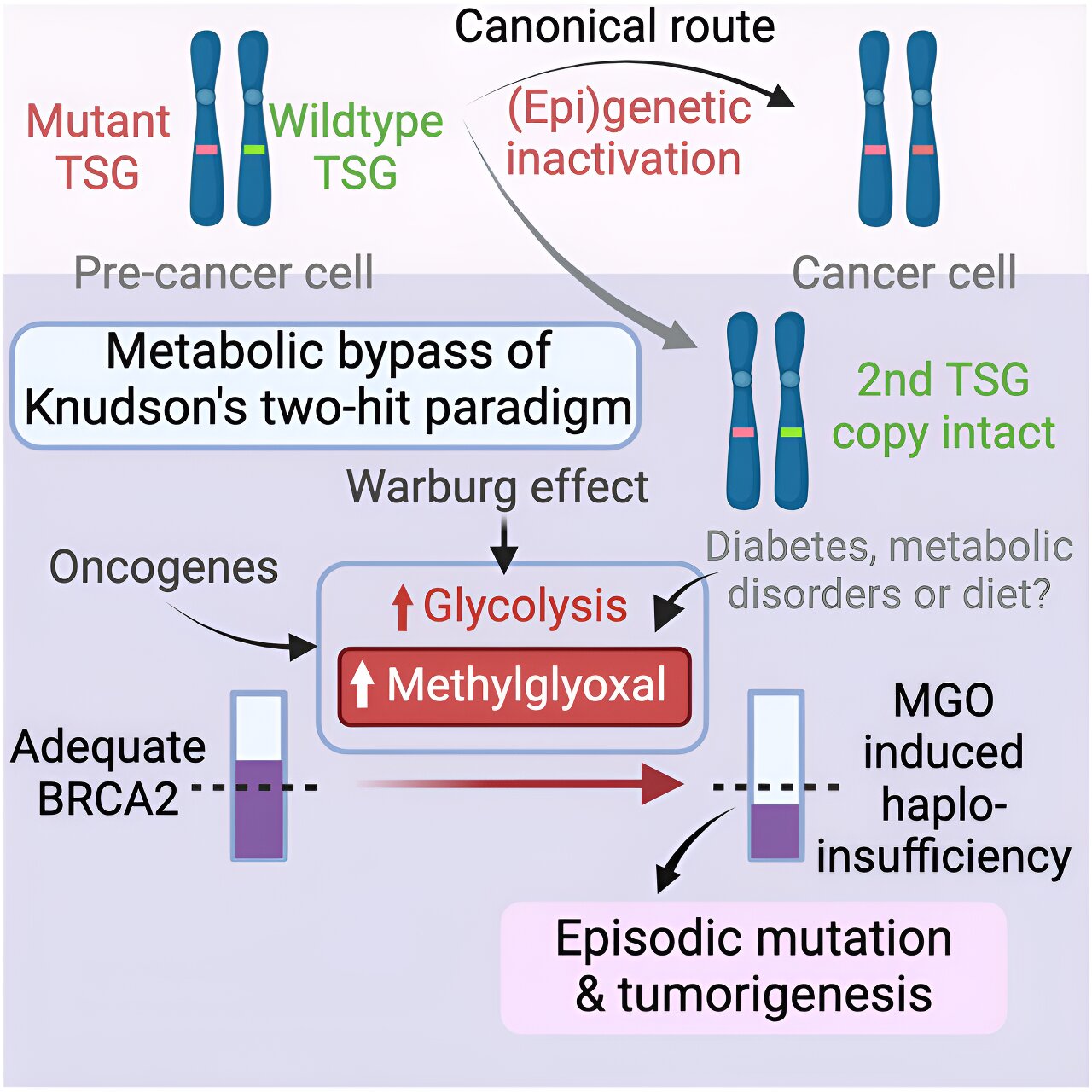Health
Scientists discover a missing link between poor nutrition and a higher risk of cancer

Graphic abstract. Credit: Cell (2024). DOI: 10.1016/j.cell.2024.03.006
A research team from the National University of Singapore (NUS) has unearthed new findings that could help explain the link between cancer risk and poor diet, as well as common diseases such as diabetes, which stem from poor diet. The insights from this study are promising for advancing cancer prevention strategies aimed at promoting healthy aging.
The team’s findings have been published in Cell
Led by Professor Ashok Venkitaraman, this study was conducted by scientists from the Cancer Science Institute of Singapore (CSI Singapore) at NUS and NUS Center for Cancer Research (N2CR) under the Yong Loo Lin School of Medicine, with colleagues from the Agency for Science , Technology and Research (A*STAR).
Prof Venkitaraman, Director of CSI Singapore, explained: “Cancer is caused by the interaction between our genes and factors in our environment, such as diet, exercise and pollution. How such environmental factors increase the risk of cancer is not yet very clear, but it is essential to understand the connection if we want to take preventive measures that will help us stay healthier for longer.”
A chemical linked to diabetes, obesity and poor diet may increase the risk of cancer
The research team first studied patients who are at high risk of developing breast or ovarian cancer because they inherit a defective copy of the cancer gene – BRCA2 – from their parents. They showed that cells from such patients were particularly sensitive to the effects of methylglyoxal, a chemical produced when our cells break down glucose to create energy.
The research found that this chemical can cause errors in our DNA that are early warning signs of the development of cancer.
The team’s research also suggested that people who do not inherit a faulty copy of BRCA2 but could experience higher-than-normal levels of methylglyoxal – such as patients with diabetes or pre-diabetes, linked to obesity or a poor diet – produce similar amounts can accumulate. warning signs that indicate a higher risk of developing cancer.
Professor Venkitaraman said: “Our research suggests that patients with high methylglyoxal levels may have a higher risk of cancer. Methylglyoxal can be easily detected by a blood test for HbA1C, which can potentially be used as a marker. In addition, high methylglyoxal levels can usually be controlled. with medications and a good diet, creating opportunities for proactive measures against the onset of cancer.”
The study’s first author, Dr. Li Ren Kong, Lee Kuan Yew Fellow of N2CR, added: “We initiated the study with the aim of understanding which factors increase risk in cancer-prone families, but ultimately we discovered a deeper mechanism that links essential energy consumption. pathway to cancer development. These findings increase awareness of the impact of diet and weight management on managing cancer risk.”
Novel mechanism for tumor formation
Interestingly, the research team’s work also revised a long-standing theory about certain cancer prevention genes. This theory – called Knudson’s ‘two-hit’ paradigm – was first formulated in 1971 and proposed that these genes must be permanently inactivated in our cells before cancer can develop.
The NUS team has now discovered that methylglyoxal can temporarily inactivate such cancer prevention genes, suggesting that repeated episodes of poor diet or uncontrolled diabetes can ‘add up’ over time and increase the risk of cancer. This new knowledge will likely be influential in changing the direction of future research in this area.
Next phase of research
Building on their new discoveries, the researchers want to conduct further research to understand whether metabolic disorders, such as diabetes or poor diet, influence cancer risk in Singapore and other Asian countries.
The research team also hopes to identify new mechanisms underlying the link between metabolism, diet and cancer that they discovered, to develop more effective approaches to prevent or delay the onset of cancer.
More information:
Li Ren Kong et al., A glycolytic metabolite circumvents ‘two-hit’ tumor suppression by BRCA2, Cell (2024). DOI: 10.1016/j.cell.2024.03.006
Quote: Scientists discover missing link between poor diet and higher cancer risk (2024, April 12) retrieved April 13, 2024 from https://medicalxpress.com/news/2024-04-scientists-uncover-link-poor-diet .html
This document is copyrighted. Except for fair dealing purposes for the purpose of private study or research, no part may be reproduced without written permission. The content is provided for informational purposes only.









